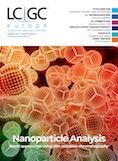16th International Symposium on Hyphenated Techniques in Chromatography and Separation Technology (HTC-16)
The 16th International Symposium on Hyphenated Techniques in Chromatography and Separation Technology (HTC-16) will be held from 29–31 January 2020 in Ghent, Belgium.
The 16th International Symposium on Hyphenated Techniques in Chromatography and Separation Technology (HTC-16) will be held from 29–31 January 2020 in Ghent, Belgium. The symposium is organized under the auspices of the Royal Flemish Chemical Society (KVCV) in collaboration with the Royal Society of Chemistry (RSC).
The HTC-16 conference is a leading platform for state-ofâtheâart developments in separation technologies and hyphenated techniques. The conference will have three parallel sessions consisting of plenary lectures, keynote lectures, tutorials, as well as oral and posterâflash presentations. One of the parallel sessions is dedicated to emerging young scientists.
The symposium will also host an important technical exhibition where vendors present their newest instruments and developments, as well as technical seminars.
The symposium will cover a range of topics such as fundamental and practical aspects of liquidâphase and gas chromatography (GC), including ultrahighâpressure liquid chromatography–mass spectrometry (UHPLC–MS), twoâdimensional liquid chromatography (2D-LC), GC–MS, comprehensive two-dimensional gas chromatography (GC×GC)–MS, supercritical fluid chromatography (SFC), and much more. The programme will also cover sample preparation and hyphenation, advances in method development, strategies to achieve high peak capacity and highâthroughput analysis, and trends in handling complex data, data mining, and data curation. The conference will also address potential bottlenecks and describe trends and new technologies for a wide range of applications, including (bio-)pharmaceuticals, medical and clinical applications, food and beverages, environmental studies, and energy.
Outside the scientific sessions there will be abundant networking possibilities, including a beer-tasting event and a conference dinner. Plenary lectures will be given by Robert Kennedy (University of Michigan, United States); Emily Hilder (University of South Australia, Australia); Gert Desmet (Free University of Brussels, Belgium); and Pat Sandra (Research Institute for Chromatography, Belgium). Other sessions include dedicated sessions for “Innovations and Applications in Industry”, industry pitches, and an HTC YouTube contest.
Numerous awards will be presented at HTC-16. The 2020 HTC Innovation Award, which is sponsored by LCGC Europe, will be offered to a researcher below 45 years of age for “a pioneering contribution to the field of separation sciences by introducing new methodologies, new instrumentation, or new techniques in the field, with a strong focus on applicability”. The most innovative poster contributions will receive the HTC-Poster Awards.
Participants are invited to register and submit abstracts for review. All oral slots have been filled, but there is still opportunity to present posters and poster-flash presentations. Participants wishing to present a poster or poster-flash presentation should submit abstracts using the abstract submission menu available on the website.
Website:www.htc-16.com E-mail:htc16@kuleuven.be

Investigating 3D-Printable Stationary Phases in Liquid Chromatography
May 7th 20253D printing technology has potential in chromatography, but a major challenge is developing materials with both high porosity and robust mechanical properties. Recently, scientists compared the separation performances of eight different 3D printable stationary phases.
Detecting Hyper-Fast Chromatographic Peaks Using Ion Mobility Spectrometry
May 6th 2025Ion mobility spectrometers can detect trace compounds quickly, though they can face various issues with detecting certain peaks. University of Hannover scientists created a new system for resolving hyper-fast gas chromatography (GC) peaks.
University of Oklahoma and UC Davis Researchers Probe Lipidomic Profiles with RP-LC–HRMS/MS
May 6th 2025A joint study between the University of Oklahoma Health Sciences Center (Oklahoma City, Oklahoma) and the UC Davis West Coast Metabolomics Center (Davis, California) identified differentially regulated lipids in type 2 diabetes (T2D) and obesity through the application of reversed-phase liquid chromatography-accurate mass tandem mass spectrometry (RP-LC-accurate MS/MS).

.png&w=3840&q=75)

.png&w=3840&q=75)



.png&w=3840&q=75)



.png&w=3840&q=75)








